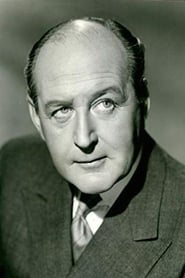 Little Friend
Little Friend
1934
 Me and Marlborough
Me and Marlborough
1935
 Jack of All Trades
Jack of All Trades
1936
 Her Last Affaire
Her Last Affaire
1935
 Dishonour Bright
Dishonour Bright
1936
 Under Capricorn
Under Capricorn
1949
 Under Your Hat
Under Your Hat
1940
 Lady in Danger
Lady in Danger
1934
 Tony Draws a Horse
Tony Draws a Horse
1950
 The Magnificent Two
The Magnificent Two
1967
 The Brain
The Brain
1962
 Happy Is the Bride
Happy Is the Bride
1958
 Heavens Above!
Heavens Above!
1963
 Guns at Batasi
Guns at Batasi
1964
 The Amorous Prawn
The Amorous Prawn
1962
 The Navy Lark
The Navy Lark
1959
 Dirty Work
Dirty Work
1934
 A Cuckoo in the Nest
A Cuckoo in the Nest
1933
 The Golden Cage
The Golden Cage
1933
 On the Fiddle
On the Fiddle
1961
 A Study in Terror
A Study in Terror
1965
 True as a Turtle
True as a Turtle
1957
 Dark Journey
Dark Journey
1937
 The First Gentleman
The First Gentleman
1948
 Men of Yesterday
Men of Yesterday
1936
 Lady L
Lady L
1965
 The Weaker Sex
The Weaker Sex
1948
 Ships with Wings
Ships with Wings
1941
 Follow That Horse!
Follow That Horse!
1960
 Foreign Affaires
Foreign Affaires
1935
 The Silver Spoon
The Silver Spoon
1934
 The Office Wife
The Office Wife
1934
 The Magic Box
The Magic Box
1952
 The Guv'nor
The Guv'nor
1935
 Captain Boycott
Captain Boycott
1947
 Petticoat Pirates
Petticoat Pirates
1961
 The Stars Look Down
The Stars Look Down
1940
 Circus of Fear
Circus of Fear
1966
 Crime Unlimited
Crime Unlimited
1935
 Dangerous Moonlight
Dangerous Moonlight
1941
 The Blue Squadron
The Blue Squadron
1934
 Carry On Jack
Carry On Jack
1964
 The Ladykillers
The Ladykillers
1955
 A Tale of Two Cities
A Tale of Two Cities
1958
 Indiscreet
Indiscreet
1958
 The Court Jester
The Court Jester
1955
 Caesar and Cleopatra
Caesar and Cleopatra
1945
 Housemaster
Housemaster
1938
 The Citadel
The Citadel
1938
 Storm in a Teacup
Storm in a Teacup
1937
 The Magic Bow
The Magic Bow
1946
 Dear Mr. Prohack
Dear Mr. Prohack
1949
 Hungry Hill
Hungry Hill
1947
 On the Fiddle
On the Fiddle
1961
 His Excellency
His Excellency
1952
 I Believe in You
I Believe in You
1952
 A French Mistress
A French Mistress
1960
 Sons of the Sea
Sons of the Sea
1939
 The Comedy Man
The Comedy Man
1964
 I Was Monty's Double
I Was Monty's Double
1958
 The Constant Husband
The Constant Husband
1955
 Quartet
Quartet
1948
 The Saint's Vacation
The Saint's Vacation
1941
 Under Ten Flags
Under Ten Flags
1960
 The Iron Maiden
The Iron Maiden
1963
 Father Brown
Father Brown
1954
 The Lady Vanishes
The Lady Vanishes
1938






























Comments